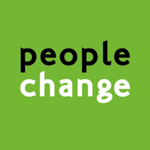Transformation programme – Integration phase
In this series of four articles Daan Noordeloos discusses the four I’s – Insight, Inspiration, Implementation and Integration – from the perspective of an internal transformation manager, supported by People Change.
The Integration phase is the phase in which many organizations do the least. After the initial successes the attention slackens and the energy goes to another project. The integration phase is essential in a sustainable transformation, because it is about the question: how do we stay here? You have brought a team to a certain level, how do you solidify that?
The integration phase is the game to continuously ask the question: what have we learned and how do we solidify this in the organization so that future generations can benefit from it?

Train the trainer
In order to embed what has been learned, People Change trains people to coach employees themselves based on the Scan and to supervise GROW cases. In this way, we create a sustainable change in our organization, independent of external trainers, so that the learning experiences do not disappear with the departure of an external one.
This starts as early as the Insight phase with the practitioner training. The first level of practitioner is explaining the individual Scan. In the Integration phase, people from the organization are trained to become practitioners of the team in order to be able to supervise teams. Finally, a number of people receive training to work with the Scan on an organizational level.
Integrate personal growth
We judge people not only on results, but also on the growth of their personal development. The leadership programme develops you in your role as a leader, but you also grow as an employee. How can we make this personal development more and more a part of the day-to-day workload in the organization, without it always coming on top of the work?
The reflex is that people opt for professional development, but we want people to continue to grow in their personal development, i.e. in their ability to work with others from the value systems. That is why we first create a support team in the organization with coaching and guidance for that development, as part of the training to become a practitioner.
Personal development within your field of expertise
Within specific groups in the organization, for example high potentials, we look at how we can give personal development a place within their field of expertise. High potentials who want to grow, have to be competent and continuously show that they can achieve results at a high level. Sometimes someone gets bogged down in this. Then we look for a deeper cause. Someone may, for example, have her interpersonal communication a little less in order. That is why we coach high potentials on the basis of the value systems, so that they can achieve their results next time.
Integrating the Scan into daily work
We also integrate personal development in organizations with a large IT component; most commercial activities take place online and many companies are in the midst of a digital transformation. How do you make that part of the day-to-day work situation?
Every day, people are working on their own development and that of the team in order to perform better. If you want to develop better digital products and market them better, you have to work together. At the same time, the world is changing so fast that teams are constantly changing. The team always has to grow on the value axis from ‘me’ to ‘us’ in order to perform.
At the same time, managers have become many more coaches. Coaching does not come on top of the work, but has become a part of it. The coaching of the team is half coaching to rise on the value axis. So they use the insights of the Scan to guide their teams in their daily work.
Strategic solidifying
In all places we are thinking about how we can make this thought stick. It is even completely solidified in our strategy and plans. It has really become a conviction of the organization.
Want to know more?
